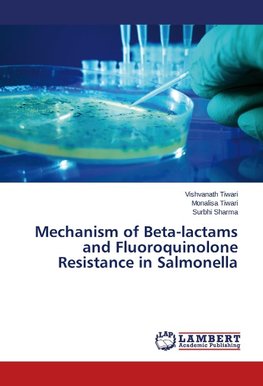
-
 Anglický jazyk
Anglický jazyk
Mechanism of Beta-lactams and Fluoroquinolone Resistance in Salmonella
Autor: Vishvanath Tiwari
Salmonella is a Gram-negative facultative intracellular anaerobe causing typhoid fever (enteric fever) in humans. Fluoroquinolones and carbapenems are the drug of choice against Salmonella. Emergence of resistance against these drugs makes Salmonella, a... Viac o knihe
Na objednávku
33.30 €
bežná cena: 37.00 €
O knihe
Salmonella is a Gram-negative facultative intracellular anaerobe causing typhoid fever (enteric fever) in humans. Fluoroquinolones and carbapenems are the drug of choice against Salmonella. Emergence of resistance against these drugs makes Salmonella, a very lethal pathogen. Fluoroquinolone resistance mechanisms include target gene mutations, active efflux pump, decreased outer membrane permeability and plasmid-mediated resistance. Recently, there is an emergence of beta-lactam resistance in the Salmonella which involve expression of beta-lactamases, presence of efflux pump, alterations in the outer membrane permeability and elevated metabolism. In the present book, we have tried to explain different resistance mechanism developed in Salmonella against different antibiotics which are used against it.
- Vydavateľstvo: LAP Lambert Academic Publishing
- Rok vydania: 2015
- Formát: Paperback
- Rozmer: 220 x 150 mm
- Jazyk: Anglický jazyk
- ISBN: 9783659699566












